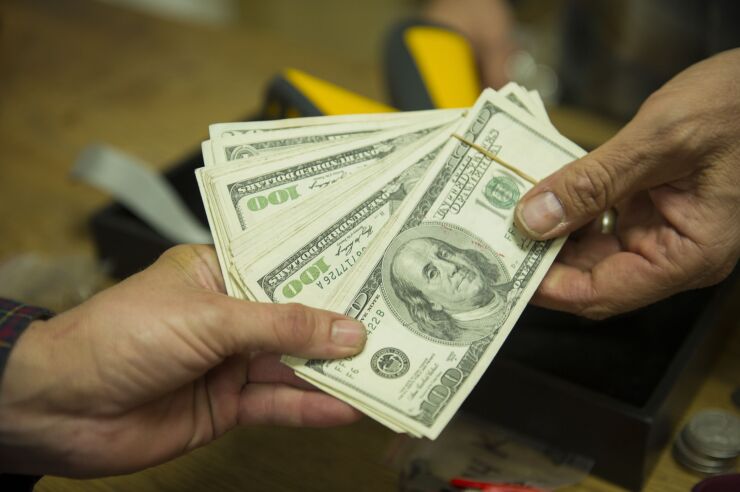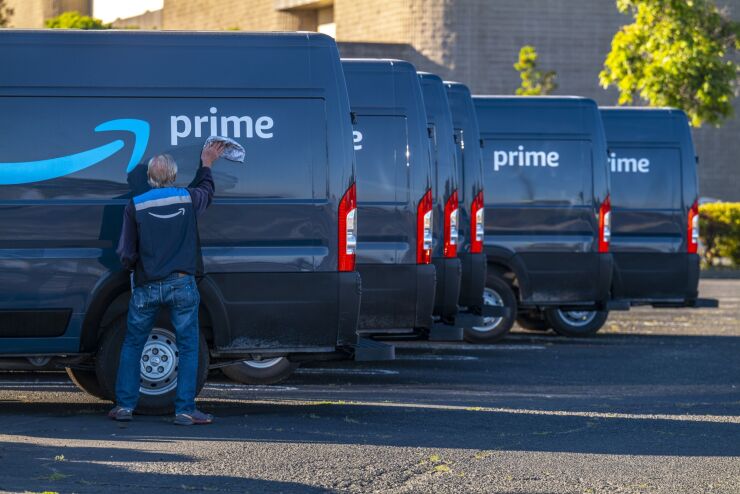The perennial question of how to use extra cash has acquired a twist in the pandemic economy, complicating life for advisors with COVID-weary clients.
As tax refunds and government relief checks hand people thousands of “extra” dollars, financial planners say they’re fighting urges by some of their clients to treat themselves — to a new sofa, say, or to an investment in Bitcoin — instead of saving for retirement or paying down debt.
At the same time, mass-market clients are hearing a different message from the government, which wants them to

Amid the tug-of-war of the two messages, “people will focus on giving themselves a little present,” says Russell Rivera, the founder and president of Voice Wealth Management, a fee-based, independent financial services firm in New York that takes clients of any asset level. Still, people who aren’t wealthy would be “better off” putting their cash windfalls toward chipping away at high-interest credit card debt or stockpiling for an emergency.
Advisors say that the save-versus-spend tension — and its counterpart, the debate over whether it’s better to pay down debt before saving — have become more acute after a year of being cooped up and not spending on dining out or travel. Layer in longstanding arguments over whether it’s better to pay off debt using the “snowball” method — tackling down the lowest balance — or the “avalanche” method — paying down the highest interest rate — and it gets more complicated.
Seed the savings cushion
Many advisors want clients to use windfalls to seed a larger cushion of savings. Citing Federal Reserve data showing that nearly four in 10 adults cannot cover
The pandemic has already altered consumer behavior in ways that highlight three often-competing strains of advice: to
In theory, high-net-worth individuals can afford to do whatever they want with their tax refunds (they haven’t gotten government relief, because they’re well over the $99,000 phase-out income
By contrast, “if you need advice on what to do with the money, you probably need to save it,” says Anora Gaudiano, a financial planner for affluent clients at Wealthspire Advisors, an independent advisory firm in New York. But she adds that even “if it’s money you don’t need to spend, save it” — or put it to paying down principal on your home loan.
Don’t go wild; instead, reduce debt and save
Charles Zhang, a fee-only wealth manager based in Portage, Michigan, says that regardless of a client’s wealth level, the smart move is not to go wild and buy a new car or dip a toe into Bitcoin — ideas he has heard some clients float — but rather to put extra money into reducing any debt, stockpiling for retirement and saving for children’s education (and in that order). “That’s ordinarily what I advise and it’s what I advise now,” says Zhang, whose practice requires a minimum of $1 million (double that amount if out of state).
Americans have already been doing some of the things that many financial advisors like to see. With their first, $1,200 stimulus checks last year (plus $500 for each child), American households used 30% to pay down debt, saved another 30% and spent the remaining 40%, according to the

Last April, the percentage of disposable income saved by Americans spiked to nearly 34%, after being a fraction of that level for decades, according to
Have a little fun
While government economists are disappointed that COVID consumers haven’t spent more overall on big-ticket items, the data supports the idea that people can save and pay down debt simultaneously, all while having at least some fun.
Elizabeth Westendorf, a financial advisor at Atwood Financial Planning, an RIA based in Washington, D.C., says that the “typical financial planner response” to the question of how best to deploy extra cash “depends quite a bit on how much cash” a client has already saved. Stockpiling a “basic rainy day fund of at least $1,500-$3,000” is the “first priority before focusing on debt,” she says. Once that modest cushion is in place, she says, paying down high-interest consumer debt can free up cash for saving for retirement and investing.
And for spending. “We don’t want to spend all of our time saving our money, doing nothing fun,” Westendorf says. “But if it’s mindless Amazon shopping, you have to set a number for your discretionary spending.”





